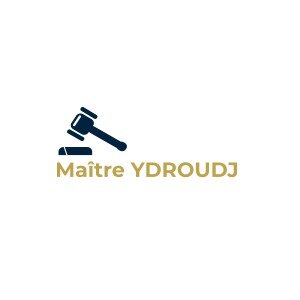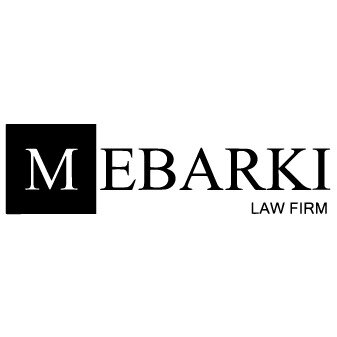Best Renewable & Alternative Energy Lawyers in Algiers
Share your needs with us, get contacted by law firms.
Free. Takes 2 min.
List of the best lawyers in Algiers, Algeria
About Renewable & Alternative Energy Law in Algiers, Algeria
Algeria, and particularly the city of Algiers, is becoming an increasingly important location for the development of renewable and alternative energy initiatives. The country is known for its significant potential in solar and wind energy due to its vast sunny deserts and open landscapes. Over the past decade, Algeria has made progressive advancements in renewable energy regulations, aiming to diversify its energy resources and promote sustainable development. These efforts are guided by a series of governmental strategies and regulations to encourage both foreign investment and domestic engagement in clean energy projects. Laws and incentives are being established to regulate project development, energy production, licensing, and the integration of renewable energy into the national grid.
Why You May Need a Lawyer
Legal guidance is crucial when navigating the complex landscape of renewable and alternative energy in Algiers. Here are some common situations where specialized legal advice is invaluable:
- Project Development and Permitting - Legal assistance is commonly required to obtain the necessary permits, licenses, and approvals for constructing and operating renewable energy installations.
- Contract Negotiations - Whether you are partnering with local businesses or government bodies, a lawyer can help draft and review power purchase agreements, joint venture agreements, or other contractual arrangements.
- Compliance with Environmental and Safety Regulations - Ensuring projects meet strict environmental and health standards can be complex.
- Land Use and Acquisition - Lawyers can facilitate land acquisition or leasing, especially concerning zoning and local land rights.
- Dispute Resolution - Disagreements may arise during project delivery or operation. Legal professionals help resolve these efficiently.
- Foreign Investment - International companies require advice on Algerian regulations affecting foreign investment in energy projects.
Local Laws Overview
Algeria has adopted a legal framework to promote renewable and alternative energy, including laws, decrees, and incentives reflecting the country’s national energy transition policy. Key aspects relevant to Algiers include:
- Renewable Energy Law - The Algerian Renewable Energy and Energy Efficiency Law establishes the structure for developing, investing in, and operating renewable energy projects, including solar, wind, and biomass.
- Investment Incentives - The government offers tax incentives, reduced tariffs, and subsidies for renewable energy projects. These incentives are subject to specific legislative criteria.
- Licensing Procedures - Project developers must obtain licenses and permits from relevant authorities, including environmental impact assessments and interconnection approvals.
- Power Purchase Agreements - Statutory guidelines govern the production and sale of renewable energy to the national grid, often requiring standardized contracts.
- Environmental Protection - Adherence to environmental regulations is mandatory at every stage of development.
- Local Content Requirements - The government encourages the use of local labor, materials, and expertise in renewable energy projects.
Frequently Asked Questions
What types of renewable energy projects are most common in Algiers?
The most common projects are solar and wind farms. There is also growing interest in biomass and small-scale hydroelectric projects.
Is foreign investment allowed in Algerian renewable energy projects?
Yes, foreign investment is welcomed and regulated through investment codes and sector-specific legislation, but investors should comply with local partnership rules and requirements.
What permits are required to develop a renewable energy project?
Developers typically need land use permits, environmental approvals, construction licenses, and a generation license from relevant ministries or regulatory bodies.
Are there financial incentives for renewable energy projects?
Yes, Algeria offers tax reductions, import duty exemptions, and other subsidies to encourage investment in renewable energy.
Who regulates the renewable energy sector in Algeria?
The main bodies are the Ministry of Energy Transition and Renewable Energies and the Regulatory Commission for Electricity and Gas (CREG).
How are disputes in renewable energy projects resolved?
Disputes may be resolved through negotiation, mediation, or, when necessary, judicial proceedings. Some contracts may include arbitration clauses.
Do local content requirements apply to renewable energy projects?
Yes, the government requires the use of local resources when possible to encourage economic development.
Is it necessary to conduct environmental impact assessments?
Yes, an environmental impact assessment is mandatory prior to project approval to ensure compliance with environmental standards.
Can private individuals produce renewable energy for personal use?
Private individuals can install small-scale renewable energy systems, but grid connection and energy resale are subject to regulatory approval.
Does the legal framework differ between solar, wind, and other renewable projects?
While the general regulatory structure is similar, there may be project-specific requirements based on technology and location.
Additional Resources
If you are seeking further information or assistance, consider the following resources:
- Ministry of Energy Transition and Renewable Energies - The primary government body responsible for renewable energy policy and project approvals.
- Regulatory Commission for Electricity and Gas (CREG) - The authority for sector regulation, licensing, and market oversight.
- Algerian Chamber of Commerce and Industry - Provides investment guidance and support for business-related energy projects.
- Local Environmental Agencies - Offer guidance and assistance on compliance with environmental regulations.
Next Steps
If you need legal assistance in the renewable and alternative energy sector in Algiers, consider the following actions:
- Identify Your Legal Needs - Clarify the nature of your project or issue, such as permitting, investment, or contract negotiation.
- Consult Specialized Lawyers - Look for law firms or attorneys with expertise in energy law, environmental regulation, and Algerian business practices.
- Gather Documentation - Prepare relevant documents, including business plans, project proposals, and any communications with regulatory bodies.
- Engage Early - The earlier a lawyer is involved, the more effectively they can help you navigate approvals and avoid costly errors.
- Stay Informed - Keep updated on changes in laws and policies to ensure ongoing compliance and maximize incentives.
By following these steps, you can reduce legal risks and ensure your renewable or alternative energy project in Algiers runs smoothly and successfully.
Lawzana helps you find the best lawyers and law firms in Algiers through a curated and pre-screened list of qualified legal professionals. Our platform offers rankings and detailed profiles of attorneys and law firms, allowing you to compare based on practice areas, including Renewable & Alternative Energy, experience, and client feedback.
Each profile includes a description of the firm's areas of practice, client reviews, team members and partners, year of establishment, spoken languages, office locations, contact information, social media presence, and any published articles or resources. Most firms on our platform speak English and are experienced in both local and international legal matters.
Get a quote from top-rated law firms in Algiers, Algeria — quickly, securely, and without unnecessary hassle.
Disclaimer:
The information provided on this page is for general informational purposes only and does not constitute legal advice. While we strive to ensure the accuracy and relevance of the content, legal information may change over time, and interpretations of the law can vary. You should always consult with a qualified legal professional for advice specific to your situation.
We disclaim all liability for actions taken or not taken based on the content of this page. If you believe any information is incorrect or outdated, please contact us, and we will review and update it where appropriate.











